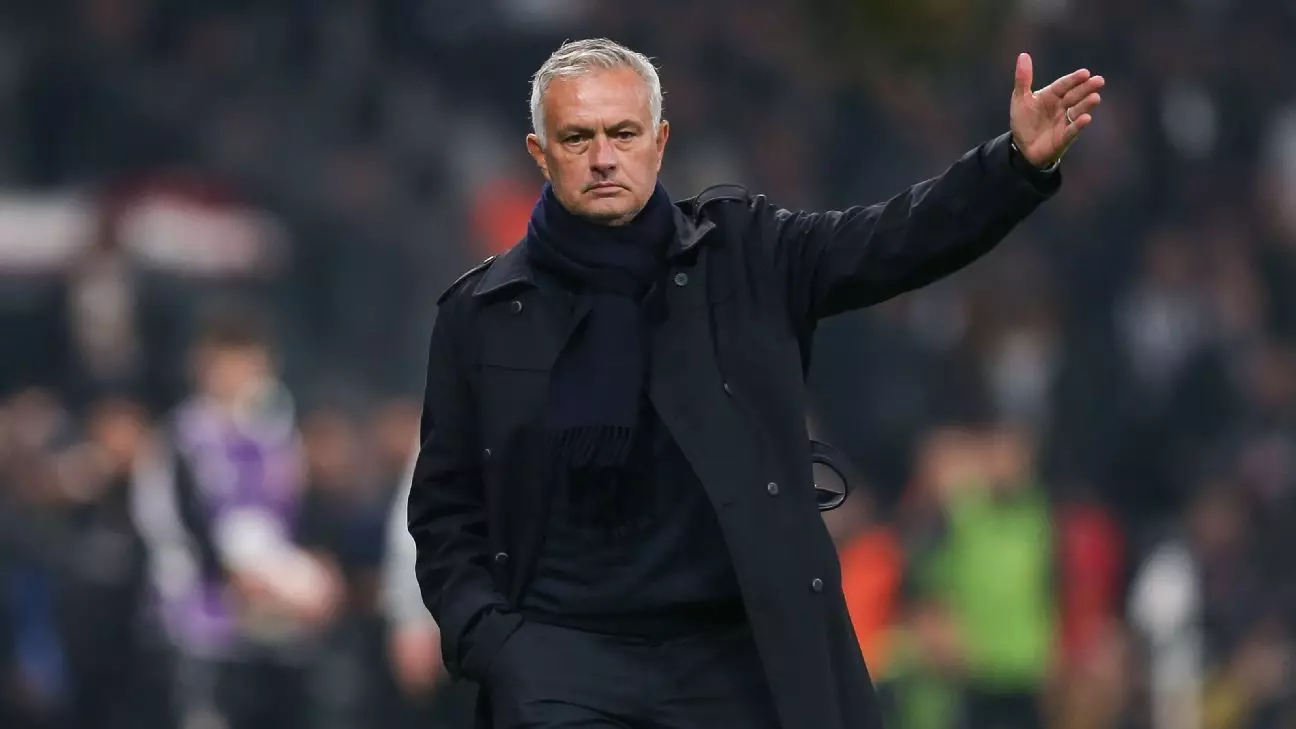In the dynamic world of football, rivalries often capture the attention of fans and media alike. One of the most high-profile tensions has existed between José Mourinho and Pep Guardiola, two titans in the coaching realm. Their rivalry began during Mourinho’s tenure at Real Madrid, where the two faced off repeatedly in La Liga and international competitions. This historical backdrop adds layers to their present confrontations, such as Mourinho’s recent remarks regarding Manchester City and the overarching theme of justice in football.
Mourinho, now at the helm of Fenerbahçe, has resurrected an age-old debate about the fairness of financial regulations in football. This stance came into the limelight after Guardiola raised a provocative hand gesture during an exchange with Liverpool fans, signifying the titles he’s accrued at Manchester City. Mourinho’s rebuttal points to a larger issue: the perceived leniency towards financially dominant clubs that often skirt established regulations, thereby distorting competition.
Mourinho’s Call for Fairness
Mourinho insists that his intentions were never to see Manchester City relegated, despite Guardiola’s insinuations that such views stem from a desire to see the club punished for financial misconduct. Rather, Mourinho’s critique is directed toward the inconsistencies of Financial Fair Play (FFP) regulations. He champions smaller clubs that face severe repercussions for minor financial infractions while larger entities, described as ‘financial sharks,’ seem to evade consequences through loopholes.
This concern is not merely academic for Mourinho; he cites his struggles at Roma, where budget limitations hampered his ability to field a competitive team. His comments resonate deeply with fans and advocates of fairness in sports, who argue that the current system disproportionately favors wealthy clubs, jeopardizing the very essence of competition that football enthusiasts cherish. In an era where financial might often trumps sporting merit, Mourinho’s passion for equity in football feels both timely and necessary.
On the other side of this narrative is Pep Guardiola, who, while not directly addressing Mourinho’s statements, seems unfazed by the resurgence of their rivalry. Guardiola’s focus has shifted toward his commitment to Manchester City, where he recently signed a contract extension until 2027. In his comments, Guardiola indicated a lack of interest in pursuing jobs with other clubs following his tenure at City, preferring the potential of managing a national team instead.
His remarks highlight a personal philosophy centered around commitment and loyalty to his current role. Yet, the implications of Mourinho’s critique regarding financial accountability linger in the background, prompting Guardiola to maintain a defensive posture regarding City’s financial dealings. Whether or not the allegations against City will yield significant consequences remains uncertain, but the discussion invokes broader questions about the future of integrity in football governance.
Despite their longstanding rivalry, both coaches appear to acknowledge the underlying respect they share. Mourinho emphasized that their personal relationship remains intact, asserting that “there are no problems” between them. This sentiment suggests that, while public personas can become enmeshed in fierce competition, genuine connections often transcend the on-field battles.
The intrigue surrounding Mourinho and Guardiola’s interactions serves as a microcosm of the larger currents within football. It underscores the need for a balanced approach to justice in the sport and calls into question how financial power influences competitive integrity. As debate persists within football communities about fairness and governance, the words of these two coaches will likely resonate with audiences far beyond the pitch.
In the end, the clash between Mourinho and Guardiola, while rife with historical animosity, serves as a crucial discussion point for all stakeholders in football. It raises perennial questions about fairness, the implications of financial competitiveness, and the integrity of the sport itself. As fans, players, and clubs ponder the implications of financial regulations, the insights offered by two of football’s most prominent figures spotlight the essential need for justice in a game that thrives on competition, passion, and integrity.

